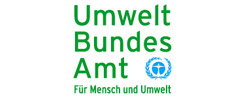Why Women and the Environment
The press release on the publication "Why Women and the Environment".
10.08.2005 |Helen Lynn WEN

Why women matter to the environment
Despite progress towards sexual equality, gender differences still exist when it comes to the environment, says a new briefing from Women’s Environmental Network. Women matter, are active at the grassroots and hold many solutions to environmental problems, says Why women and the environment? Yet they have less influence over the major environmental decisions because men still, by and large, hold the reins of power in politics, civil society and business. Social roles, poverty and biology give women different concerns and perspectives which often go unheard.“Connections between women and the environment are most obvious in less industrialised countries where women still grow much of the food, and are typically depicted as ‘hewers of wood, haulers of water’,“ says the briefing. “But gender differences exist in all societies and affect everyone’s experience of the environment and their impact on it.”
Women are sometimes cast as ‘custodians of the environment’, adding to their triple roles of childcare, work in the home and paid employment. But parallels can be drawn between the undervaluing of women’s work and the treatment of the ecosystem. Ironically women are expected to act as keepers of the environment while having the least control over or say in, decisions that affect it.
WEN urges women to use their citizen and consumer power, make their voices heard, get involved in community or local politics and support or get active in WEN or linked groups.
The briefing shows how:
- social roles expose women to environmental problems in particular ways
- poverty exposes women to more environmental problems
- biology makes women more vulnerable to toxic exposure at particular times of life.
For instance, women are more likely to work in jobs like cleaning, hair and beauty or the electronics industry, which expose them to hazardous chemicals. Women are more vulnerable to certain toxic exposures during puberty, pregnancy, the menopause and old age.
Women’s slice of the European power pie is still too small: they make up only 30% of the European Parliament eight percent of top company board members and less than 36% of top NGO leaders. . Yet women are ‘green role models in their thousands’, including Nobel Peace Prize winner Wangari Maathi, founder of Kenya’s Green Belt Movement, Silent Spring author Rachel Carson, and the original ‘tree huggers’ of the Chipko movement in India.
Why women and the environment? is produced with WEN’s partner organisation, Women in Europe for a Common Future, as a resource for women and men working across the continent for a better environment. It can be downloaded free from www.wen.org.uk/resources or ordered, price £1, from WEN, PO Box 30626, London E1 1TZ.
For more information call: 020 7481 9004 - Liz Sutton, Communications Co-ordinator (m: 07973 323789) or Helen Lynn, Campaigns Co-ordinator (m: 07957 408303).
NOTE TO EDITORS
WEN is a UK membership charity that campaigns on environmental and health issues from a women’s perspective. It educates, informs and empowers women and men who care about the environment.
Download the press release (116 KB, pdf)


































